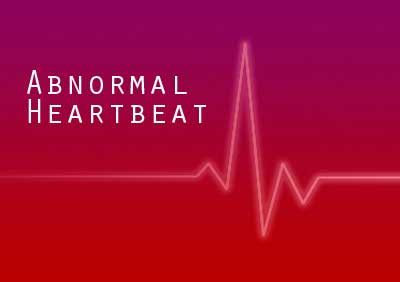- Home
- Editorial
- News
- Practice Guidelines
- Anesthesiology Guidelines
- Cancer Guidelines
- Cardiac Sciences Guidelines
- Critical Care Guidelines
- Dentistry Guidelines
- Dermatology Guidelines
- Diabetes and Endo Guidelines
- Diagnostics Guidelines
- ENT Guidelines
- Featured Practice Guidelines
- Gastroenterology Guidelines
- Geriatrics Guidelines
- Medicine Guidelines
- Nephrology Guidelines
- Neurosciences Guidelines
- Obs and Gynae Guidelines
- Ophthalmology Guidelines
- Orthopaedics Guidelines
- Paediatrics Guidelines
- Psychiatry Guidelines
- Pulmonology Guidelines
- Radiology Guidelines
- Surgery Guidelines
- Urology Guidelines
Azithromycin not linked to increased risk of ventricular arrhythmia , study shows

The commonly used antibiotic azithromycin is not linked to an increased risk of ventricular arrhythmia, an often life-threatening rapid, irregular heartbeat, according to a large study published in CMAJ (Canadian Medical Association Journal).
Azithromycin is an antibiotic commonly used to treat bacterial infections mostly respiratory and urinary tract infections in people of all ages. It belongs to a class of drugs known as macrolides, of which at least one other drug, erythromycin, is known to disrupt the heart's normal rhythm, leading to a condition known as ventricular arrhythmia.
Several recent studies have reported conflicting results over whether azithromycin is linked to an increased risk of death from ventricular arrhythmia in people taking the antibiotic. To provide clarity among these conflicting findings, a team of European researchers looked at data on nearly 29 million people in health care databases from Italy, the United Kingdom, Germany, the Netherlands and Denmark to determine if there is a link between azithromycin and ventricular arrhythmia.
Of the more than 14 million new antibiotic users, 0.1% (12 874) people developed ventricular arrhythmia, of whom 30 were new users of azithromycin. When compared to amoxicillin, another commonly used antibiotic, from the penicillin class of drugs, there was no increased risk of this heart condition in people using azithromycin. However, there was an increased risk of ventricular arrhythmia in people taking azithromycin compared to people not using antibiotics at all.
"This finding suggests that the risk of ventricular arrhythmia is more likely to be due to a person's poor health and caused by their infection, rather than to azithromycin itself," says Dr. Gianluca Trifirò, Department of Biomedical and Dental Sciences and Morpho-functional Imaging, University of Messina, Italy. "This finding was confirmed in several sensitivity analyses and replicated in single databases participating in the study."
The authors note these findings may not be applied in hospital settings as the health of patients and use of antibiotics is quite different in community settings, from which the data were drawn.
"Current azithromycin use was associated with an increased risk of ventricular arrhythmia when compared with nonuse of antibiotics, but not when compared with current amoxicillin use. The decreased risk with an active comparator suggests significant confounding by indication," the authors conclude.
You can read the full Article by clicking on the link :
Gianluca Trifirò, Maria de Ridder, Janet Sultana, Alessandro Oteri, Peter Rijnbeek, Serena Pecchioli, Giampiero Mazzaglia, Irene Bezemer, Edeltraut Garbe, Tania Schink, Elisabetta Poluzzi, Trine Frøslev, Mariam Molokhia, Igor Diemberger, Miriam C.J.M. Sturkenboom. Use of azithromycin and risk of ventricular arrhythmia. Canadian Medical Association Journal, 2017; 189 (15): E560 DOI: 10.1503/cmaj.160355

Disclaimer: This site is primarily intended for healthcare professionals. Any content/information on this website does not replace the advice of medical and/or health professionals and should not be construed as medical/diagnostic advice/endorsement or prescription. Use of this site is subject to our terms of use, privacy policy, advertisement policy. © 2020 Minerva Medical Treatment Pvt Ltd